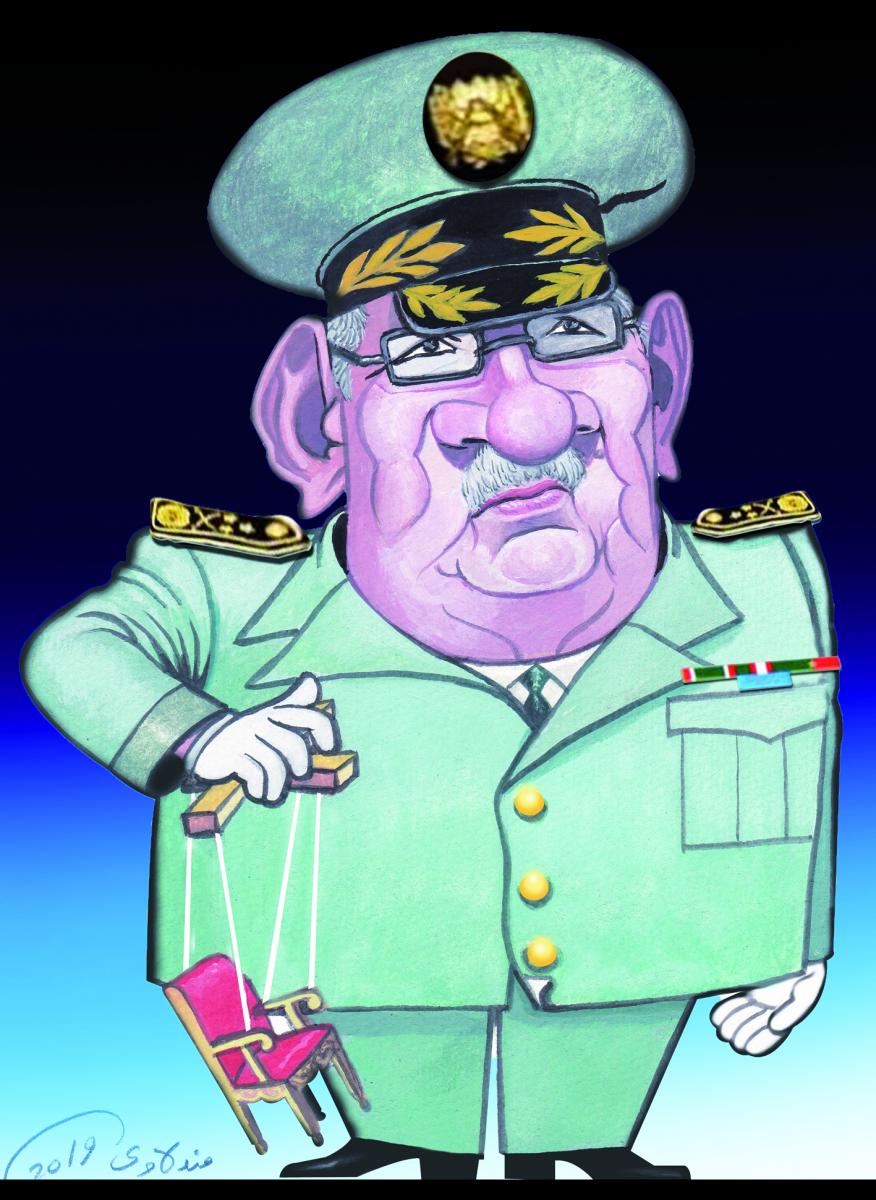
1- Army chief Ahmed Gaid Salah, who called for President Abdelaziz Bouteflika's departure, has until now been a loyal supporter of the leader who made him one of Algeria's most powerful men.
2 - Gaid Salah was born in the Algerian town of Ain Yagout in the Batna region on January 13, 1940. At the age of 17, in 1957, while Algeria was waging a war of liberation against the French occupation, he joined Algeria’s Liberation Army which battled French colonial rule for three years. Following Algeria’s independence in 1962, Gaid Saleh entered the ranks of the army before attending a Soviet military academy and moving up the ladder. Gaid Salah successively commanded several military regions, before being appointed chief of staff of land forces in 1994, two years into the decade-long civil war between the Algerian army and armed Islamists.
3 - In 2004, just before he was about to retire, Gaid Salah was picked by Bouteflika to replace chief of staff Mohamed Lamari, who was again the president serving for a second term. After returning from Paris in July 2013, where he spent 80 days in hospital following a stroke, Bouteflika gave him the added responsibility of deputy defence minister. His appointment was seen as an exchange for his support of Bouteflika for a fourth presidential term in 2014, in spite of his deteriorating health which confined him to a wheelchair.
4 - In recent months, Gaid Salah publicly supported Bouteflika's bid for a fifth term, until his proposal to end the crisis triggered by the unprecedented opposition that his candidacy raised.
He invoked Article 102 of the constitution under which a president can be removed if found unfit to govern due to a “serious and durable illness” as a way out of the crisis. "It is necessary, even imperative, to adopt a solution to get out of the crisis which responds to the legitimate demands of the Algerian people, and which guarantees the respect of the provisions of the constitution and safeguards the sovereignty of the state," the general said in a televised speech.
5 - His decision to oust the president, cast his other close associated adrift and declare that the army is aligned with the protesters demonstrated a recognition that drastic measures were needed to save the country. While denouncing cliques of private interests, Gaid Salah claimed that Algeria's army is "modern and professional”. Following the general’s actions, slogans included: "The army and the people are brothers, brothers" and "the army and the people are one hand”, signalling a vote of confidence in the Gaid Salah’s decisions.
6 - Gaid Salah's demand for the immediate application of article 102 also mentioned articles seven and eight of the constitution. These formally state that sovereignty in Algeria rests with the people. Protestor’s demands have been far-reaching from the start, and its momentum has been sustained from one week to the next, with students, lawyers, judges, journalists, academics and even fire-fighters and army veterans demonstrating on the days between each massive Friday protest. A popular slogan is: "1962: country liberated, 2019: people liberated.”
7 - The big question now is whether Gaid Salah will permit a transition that really gives sovereignty to the people.







